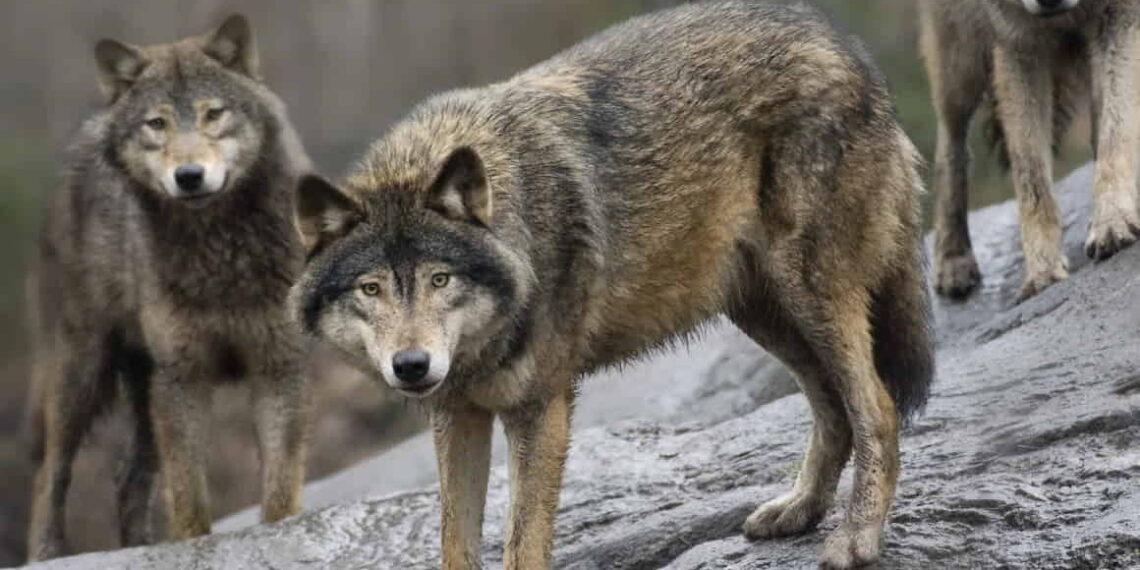Sweden Allows Nearly 10% of Wolf Population to be Killed Amid Growing Controversy
Sweden has begun its annual wolf hunt this week, with the government permitting the culling of nearly 10% of the country’s endangered wolf population. This decision has raised alarms among conservationists, who argue that it goes against European Union (EU) law. The controversial policy, which has been in place since 2010, allows licensed hunting of wolves within a set quota, but critics are concerned that it undermines efforts to protect the species.
A Controversial and Growing Issue
Since the 1970s, when wolves were hunted to near extinction in Sweden, their population has gradually rebounded, thanks in part to EU conservation efforts. However, the Swedish government has now approved the killing of 30 wolves out of an estimated 375. This move is part of the government’s wider strategy to reduce the wolf population from a minimum threshold of 300 to a new target of 170, known as the “favorable reference value” set by Sweden’s Environmental Protection Agency.
Despite their protected status, wolves are listed as “highly threatened” on The Swedish Red List, which monitors species at risk of extinction. The culling plan has sparked significant debate, with some conservationists asserting that the move contradicts both Sweden’s environmental commitments and the EU’s legal framework.
Concerns Over Genetic Diversity and Policy Shifts
Conservationists have raised concerns that reducing the wolf population could lead to genetic problems, making the species even more vulnerable in the long term. Staffan Widstrand, managing director of Wild Wonders International, stated that a country like Sweden should be able to support a healthy population of wild animals, including wolves. He criticized the Swedish government’s growing “anti-wildlife sentiment” and its more aggressive stance against carnivores compared to previous administrations.
Moreover, the decision to downgrade the wolf’s protection status has further alarmed environmental groups. Last month, the Council of Europe’s Bern Convention voted in favor of an EU proposal to reduce wolves’ legal protections from “strictly protected” to simply “protected,” giving EU member states greater flexibility in managing their wolf populations. The World Wide Fund for Nature (WWF) condemned this move, calling it a “serious misstep” without scientific basis.
Political Influence Behind the Cull
Some conservationists argue that the Swedish government is using the wolf issue as a political bargaining tool. With only 3% of Sweden’s population actively involved in hunting, the 300,000 hunters in the country hold considerable political influence. According to Magnus Orrebrant, Chair of the Swedish Carnivore Association (SCA), hunting organizations have significant sway over both of Sweden’s main political parties, which are often closely divided in polls.
Orrebrant’s organization advocates for coexistence between humans and carnivorous animals, including wolves and bears. However, he is concerned that the government’s stance is being influenced by rural interests, particularly those of livestock farmers who view the wolf as a threat to their livelihoods.
The Growing Anti-Wolf Sentiment Across Europe
Sweden is not alone in grappling with anti-wolf sentiments. In other parts of Europe, such as Germany and Italy, the wolf population has increased, and tensions between conservation efforts and rural communities have grown. Ursula von der Leyen, the President of the European Commission, voiced her concerns in 2023, highlighting the dangers posed by concentrated wolf packs to livestock and, potentially, to humans.
Von der Leyen’s statement came under fire from conservation groups, including the WWF, who called it misleading and scientifically unfounded. Despite this, she supported the decision by the Bern Convention committee to relax wolf protections, emphasizing the need for a balanced approach to preserve wildlife while protecting farming communities.
Wolves in Sweden: A Growing Problem for Rural Communities?
The wolf population in Sweden is growing, and with it, concerns from rural communities. Minister for Rural Affairs Peter Kullgren has argued that wolves are increasingly affecting Swedish society. He noted that parents are afraid to let children play outside, farmers are worried about their livestock, and dog owners fear for their pets.
However, conservationists like Beatrice Rindevall, chairperson of the Swedish Society for Nature Conservation, argue that the government is overhyping the threat. She pointed out that there has been no wolf attack on a human since 1821 and criticized the government for stoking unnecessary fear.
The Debate Over Wolf Protection in Europe
With the recent decision to downgrade the protection status of wolves in the EU, concerns are mounting that other countries may follow Sweden’s lead. If the EU decides to adopt the Bern Convention committee’s decision, countries like Germany, Italy, and Spain could implement similar culling policies, potentially leading to a broader decline in wolf populations across Europe.
Some argue that Sweden, as one of the wealthiest and most resourceful countries in the world, should be able to coexist with its wild animals, including wolves. Magnus Rydholm, from the Swedish Association for Hunting and Wildlife Management, supports the hunt as a necessary measure to protect livestock, particularly for smaller farmers who cannot afford expensive predator-proof fencing.
However, Rindevall questions the broader message Sweden’s actions send. She expressed concern that Sweden’s approach might undermine global conservation efforts, asking how the world can expect developing countries to preserve endangered species like tigers and elephants if Sweden, with its vast resources, is unable to coexist with wolves.
The Future of Wolves in Sweden and Europe
As Sweden continues its wolf culling policy, the debate between conservationists and rural communities is likely to intensify. The upcoming EU decisions on wolf protection could set a precedent for other European nations, further influencing the future of wolves across the continent. Whether Sweden will find a middle ground that balances wildlife conservation and the concerns of rural communities remains to be seen, but the situation is far from resolved.
This article was rewritten by JournosNews.com based on verified reporting from trusted sources. The content has been independently reviewed, fact-checked, and edited for accuracy, neutrality, tone, and global readability in accordance with Google News and AdSense standards.
All opinions, quotes, or statements from contributors, experts, or sourced organizations do not necessarily reflect the views of JournosNews.com. JournosNews.com maintains full editorial independence from any external funders, sponsors, or organizations.
Stay informed with JournosNews.com — your trusted source for verified global reporting and in-depth analysis. Follow us on Google News, BlueSky, and X for real-time updates.














